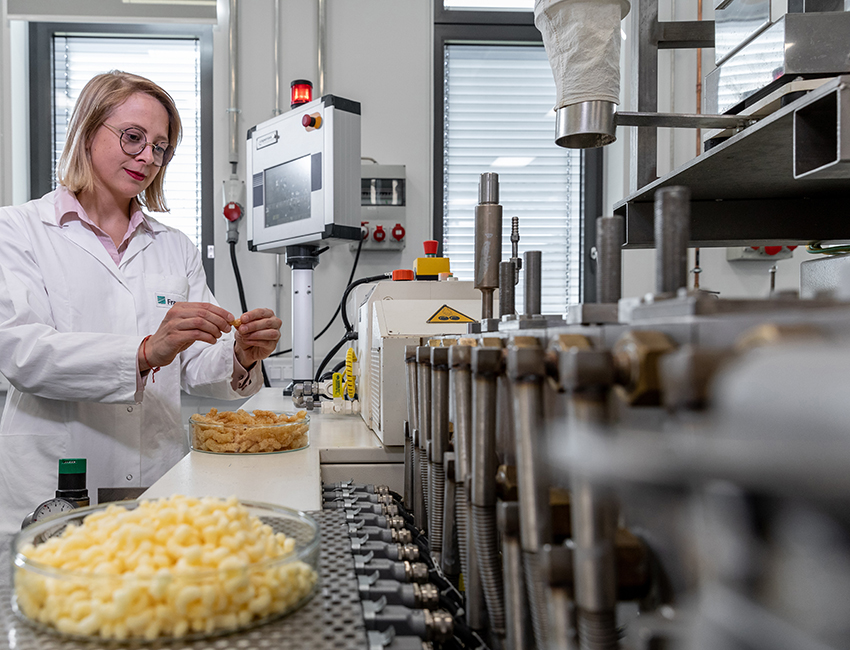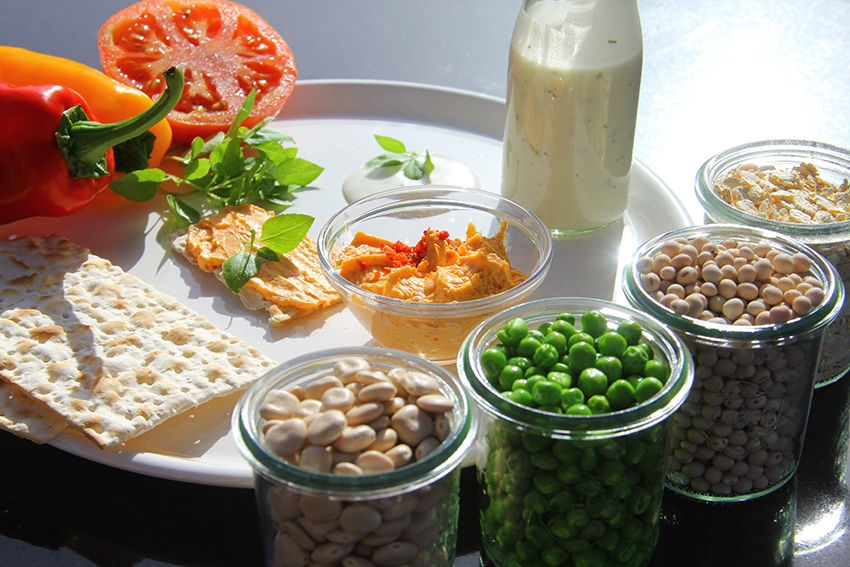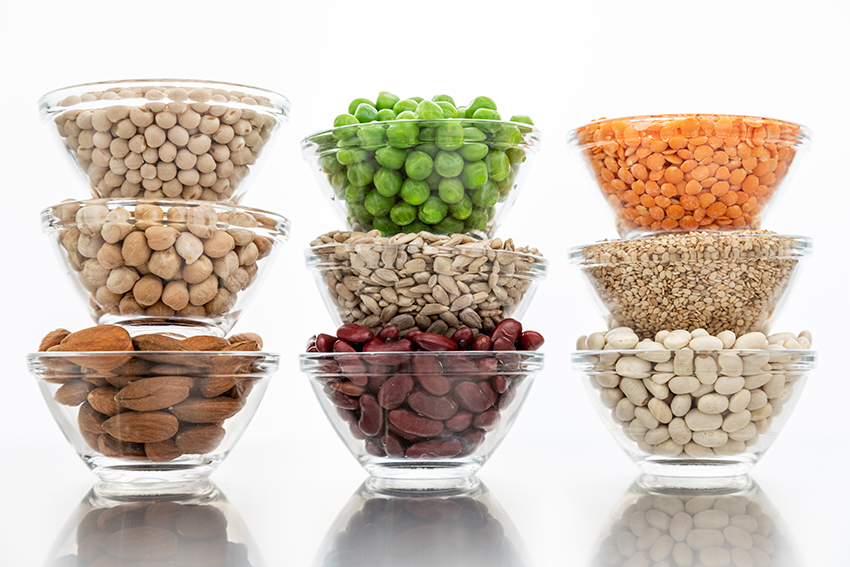The institute is part of the Fraunhofer-Gesellschaft, the largest applied-research organisation in Europe. Fraunhofer IVV employs 320 people at locations in Freising and Dresden in Germany in order to develop pioneering products, processes, and technologies in the fields of food, packaging, product effects, and processing machinery, as well as recycling and the environment.
What are the roles and responsibilities of Fraunhofer IVV in the Smart Protein project?

Copyright: Fraunhofer IVV
Fraunhofer IVV is coordinating the activities of Work Package 2: Plant Protein Processing and Sidestream Upcycling (WP2), which focuses mainly on the processing of plant-protein isolates and concentrates from legumes and quinoa, as well as the upcycling of food-processing side-streams via fermentation with edible fungi.
The specific research focus of Fraunhofer IVV in this Work Package is the development and optimisation of sustainable processes for the production of protein concentrates and isolates from lentils and chickpeas at pilot-scale and, subsequently, the implementation of these processes on a pre-commercial scale, in cooperation with the industrial partners. We are also involved in the development of plant-based, protein-rich food prototypes in Work Package 3: Food Processing. Our key activity in this Work Package is on the application of high- and low-moisture extrusion technologies for the production of innovative meat and seafood alternatives from the newly developed protein-rich ingredients. This includes process optimisation, scaling, and validation of the processes for producing meat and seafood alternatives in an industrially relevant environment.
What expertise does Fraunhofer IVV bring to the Smart Protein project?

Copyright: Fraunhofer IVV
Our research and development focuses on the optimal utilisation of raw plant materials and the manufacture of functional protein ingredients, which are used for the development of high-quality vegan and vegetarian foods.
In the process, Fraunhofer IVV recovers proteins from a wide variety of raw plant materials such as protein-containing seeds and protein-containing by-products of the food-manufacturing industry. Key aspects of our work are the sustainable and holistic use of plant-based raw materials.
The functional and sensory properties of plant-protein flours, concentrates, and isolates are customised using tailored recovery and processing methods.
Depending on the ingredient characteristics, Fraunhofer IVV uses plant proteins as structuring agents, emulsifiers, and stabilisers for the development of vegan and vegetarian foods. Other key quality criteria of plant proteins include their biological value and digestibility, which can be ensured by applying mild processing.
What is your organisation’s expertise/work outside of the Smart Protein project?

Copyright: Fraunhofer IVV
The work of Fraunhofer IVV encompasses five business fields: Food, Packaging, Product Performance, Processing Machinery, and Recycling and the Environment. The institute focuses on future topics such as the bioeconomy, the circular economy, and digitalisation, and tackles current challenges in order to ensure the supply of safe, high-quality foods for a growing population.
Fraunhofer IVV develops foods and packaging materials from renewable raw materials and residuals. These products meet the highest sensory requirements. New technical applications and intelligent digital solutions ensure trouble-free machine processing and minimise environmental impact. With regard to the efficient use of resources, Fraunhofer IVV also develops innovative recycling processes for plastic-containing waste and converts recyclates back into high-quality materials.
